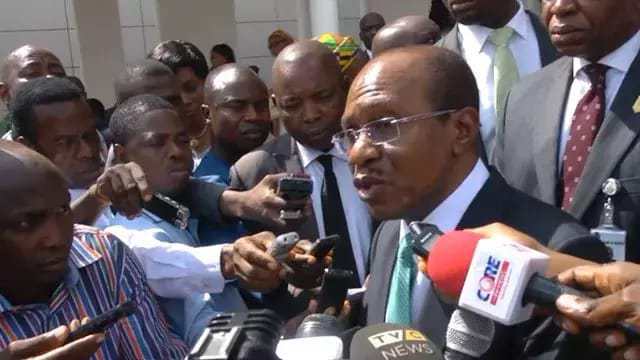There are no products in your shopping cart.
| 0 Items | £0.00 |

 ECONOMIC advisers on the Central Bank of Nigeria's (CBN) Monetary Policy Committee (MPC) have warned that the country's rising debt levels risk escalating to the levels seen prior to the 2005 Paris Club reprieve.
ECONOMIC advisers on the Central Bank of Nigeria's (CBN) Monetary Policy Committee (MPC) have warned that the country's rising debt levels risk escalating to the levels seen prior to the 2005 Paris Club reprieve.
Back in 2005, former finance minister Ngozi Okonjo-Iweala managed to negotiate debt forgiveness for Nigeria that involved the government paying about $18bn and the slate being wiped clean. However, over the last 13 years, these debts have mounted again as state and federal governments have had to resort to borrowing whenever crude oil prices fall and revenue decreases.
Pointing out that the trend is worrying, the committee warned that except the federal government came up with measures to address the country’s debt level, Nigeria’s burden might become untenable. In October 2005, Nigeria and the Paris Club announced a final agreement for debt relief worth $18bn and an overall reduction of Nigeria’s debt stock by $30bn.
This deal was completed on April 21, 2006, when Nigeria made its final payment and its books were cleared of any Paris Club debt. Based on statistics released by the Debt Management Office, Nigeria’s debt profile as of June 30, 2018, was $22.08bn.
Key government officials in the Economic Management Team had on many occasions in the past defended the country’s debt level arguing that it was still sustainable. For instance, last week, Professor Yemi Osinbajo, the vice president, said that the country was not in any form of danger.
Professor Osinbajo said: “Every country in the world that wants to make progress borrows money and our debt to gross domestic product (GDP) is one of the lowest in the world. What we are spending on is infrastructure and we are not in any kind of danger because we are borrowing for the right thing.”
However, after a recent two-day MPC meeting, CBN governor Godwin Emefiele, said that the committee noted the rising debt profile and called for caution. He said the committee noted that while the real GDP grew by 1.81% during the third quarter of 2018, the persistence of herdsmen attacks on farmers, cattle rustling and flooding in parts of the country affected agricultural and livestock output.
According to the governor, in view of this, the output for growth remained fragile as the late implementation of the 2018 budget and the residual impact of flooding and security challenges constituted headwinds to growth. To address the fragile economic outlook, the governor said the committee was of the view that effective implementation of the 2018 capital budget and the Economic Recovery and Growth Plan would stimulate economic activities.
He also added that there was a need for improvements in the security situation in the country as well as continued stability in the foreign exchange market to enhance aggregate demand and growth. On the recent increase in foreign capital inflow into the country despite the political risks, Mr Emefiele said this was based on the confidence of the international community in the country’s macroeconomic management.